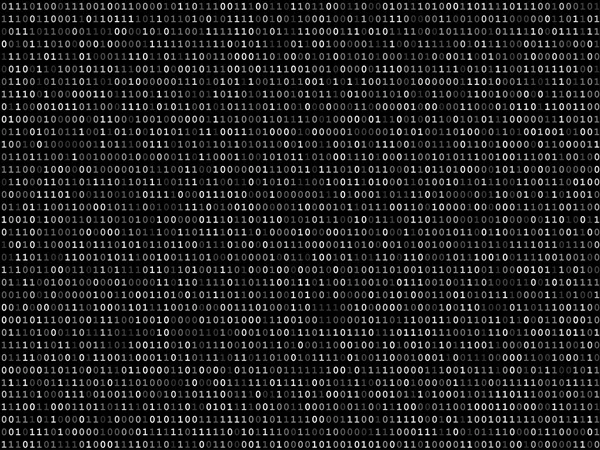Health Informatics combines healthcare science and computer information science to manage health information and improve patient outcomes. This relatively new field focuses on healthcare data management and analysis to improve patient outcomes. And it usually involves maintaining data, compliance regulation, security, and also efficiency. It is also referred to as Health Information Systems (HIS).
The Health Information Technology for Economic and Clinical Health (HITECH) Act was created in 2009. This legislation responded to the healthcare industry’s expanding and changing needs. It promotes the use of health information technology and focuses on using healthcare providers’ electronic health records (EHRs).
Health Informatics vs. Health Information Technology
Healthcare informatics (HI) and health information technology (HIT) require critical thinking, communication, data management, and also security skills. However, they differ in scope.
Health information technology (HIT) focuses on the broader systems that store and organize medical and healthcare data. Informatics emphasizes data and technology. But, health information technology (HIT) is more of a leadership role. Additionally, individuals should be able to coordinate and manage teams.
A subset of Health Informatics is Nursing Informatics. It is specific to the role of nursing roles in a healthcare setting. The American Nurses Association (ANA) reports that nursing informatics is a specialty that integrates nursing and computer science.
What is an Example of Health Informatics?
Healthcare informatics is a subfield in the information technology industry. Using various data reporting tools, it uses patient records and related data to improve healthcare delivery and outcomes. Examples include
- patient portals
- healthcare apps
- electronic medical records (EMRs)
- telehealth
What Does Healthcare Informatics Do?
These professionals plan services for a department or entire facility. So, they must remain knowledgeable of technology-related and legal changes in the health informatics field.
Health Informatics professionals find roles as clinical data analysts, health informatics specialists, and also as computer systems managers. And, with an advanced degree, these professionals qualify for the below more advanced positions.
- Senior Research Scientists
- Postsecondary Educators
- Upper-Level Healthcare Administrators
Common Health Informatics Skills
- Analytical skills
- Technical skills
- Detail oriented
- Communication and Interpersonal skills
- Problem-solving skills
Where Do They Work?
Individuals in this field work in doctor’s offices and also private practice clinics. They also have roles in hospitals, higher education, and private industry, like pharmaceutical labs.
Health informatics provides opportunities for both technical employment and advancement to leadership roles. In addition, job opportunities exist for healthcare informatics professionals with computer system administration, data analytics, or database management skills.
What is a Healthcare Informatics Degree?
Health informatics is a professional field that focuses on the tools and platforms used to store, retrieve, and also evaluate electronic medical records. Additionally, it explores how to use the information to improve patient health outcomes.
Is Health Informatics a Good Major?
The health informatics field is an excellent career choice. There are numerous roles available at every degree program level. Additionally, this career offers employment opportunities in multiple settings. Positions exist for professionals from all educational levels, and many pay more than others.
Also, we need a growing number of older adults to replace retiring employees. This demand will likely fuel the continuing demand for health informatics jobs. In addition, the starting salaries are above average throughout the country.
Is There a Demand for Healthcare Informatics?
The BLS projects that the employment of medical records, health information technicians, and medical and health services managers will grow by 9% and 32%, respectively, from 2021 to 2031.
Healthcare and also Nursing Informatics are both growing fields. Additionally, these professionals continuously incorporate new and evolving technology.
What Can You do With a Health Informatics Degree?
With a health informatics degree, individuals can work in higher education, applied research, and also in management positions. An advanced degree also qualifies graduates to work in administration.
Medical Records Specialists
These specialists process, compile, and also maintain patient health records.
Also called: Medical Coders
Health Information Technologists
These professionals advise organizations and also analyze clinical data from computerized healthcare systems.
Also called: Medical Registrars
Medical and Health Services Managers
They may manage a clinical area, department, medical practice for a group of doctors, or an entire medical facility. Additionally, these managers plan, direct, and coordinate health services in accordance with healthcare laws and changes in technology.
Also called: Clinical Managers, Healthcare Executives, Health Information Managers, Healthcare Administrators, and Nursing Home Administrators
What are the Best Jobs in Health Informatics?
Managerial and leadership jobs are some of the highest-paying health informatics roles. The BLS reports Medical and Health Services Managers earn a median annual salary of $101,340. However, even the nonmanagerial wages exceed the pay in other occupations.
| Medical Records | Health Info Tech | Health Svs Mngr | |
|---|---|---|---|
| Annual Salary | $46,660 | $55,560 | $101,340 |
| Entry-Level Education | Diploma | Associate | Bachelor’s + |
| Work Experience | none | none | > 5 yrs |
| Number of Jobs | 186,400 | 39,900 | 480,700 |
| Job Growth | 7% | 17% | 28% |
| Employment Change | 12,300 | 7,000 | 136,200 |
Additionally, a graduate degree in health informatics can increase earning potential even more. Salary also depends on geographic location, work experience, and employer.
Professional Organizations for Informatics
- American Academy of Professional Coders (AAPC)
- Healthcare Information and Management Systems Society (HIMSS)
- American Health Information Management Association (AHIMA)
- The International Medical Informatics Association (IMIA)
- American Medical Informatics Association (AMIA)
- Health Level Seven International (HL7)
- American Society of Health Informatics Managers (ASHIM)
- Health Care Compliance Association (HCCA)
Related:
- Top 10 Online Bachelor’s in Nursing
- What Can I Do With A Bachelor’s in Nursing Degree?
- Top 10 Online Master’s in Nursing
- What Can I Do With a Master’s in Nursing Degree?
- Guide to Cybersecurity Bootcamps
